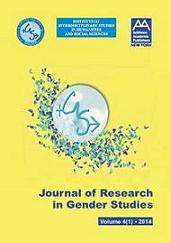Genetic Factors, Cultural Predispositions,Happiness and Gender Equality
Genetic Factors, Cultural Predispositions,Happiness and Gender Equality
Author(s): Svetlana Borinskaja, Ronald Inglehart, Jaanus Harro, Anna Cotter, Eduard Ponarin, CHRISTIAN WELZELSubject(s): Gender Studies
Published by: Addleton Academic Publishers
Keywords: genetic influences; gender equality; homosexuality; tolerance; happiness; World Values Survey
Summary/Abstract: This paper examines correlations between the genetic characteristics of human populations and their aggregate levels of tolerance and happiness. A metadata analysis of genetic polymorphisms supports the interpretation that a major cause of the systematic clustering of genetic characteristics may be climatic con33 ditions linked with relatively high or low levels of parasite vulnerability. This led vulnerable populations to develop gene pools conducive to avoidance of strangers, while less-vulnerable populations developed gene pools linked with lower levels of avoidance. This, in turn, helped shape distinctive cultures and subsequent economic development. Survey evidence from 48 countries included in the World Values Survey suggests that a combination of cultural, economic and genetic factors has made some societies more tolerant of outsiders and more predisposed to accept gender equality than others. These relatively tolerant societies also tend to be happier, partly because tolerance creates a less stressful social environment. Though economic development tends to make all societies more tolerant and open to gender equality and even somewhat happier, these findings suggest that cross-national differences in how readily these changes are accepted, may reflect genetically-linked cultural differences.
Journal: Journal of Research in Gender Studies
- Issue Year: 4/2014
- Issue No: 1
- Page Range: 32-100
- Page Count: 69
- Language: English
- Content File-PDF

